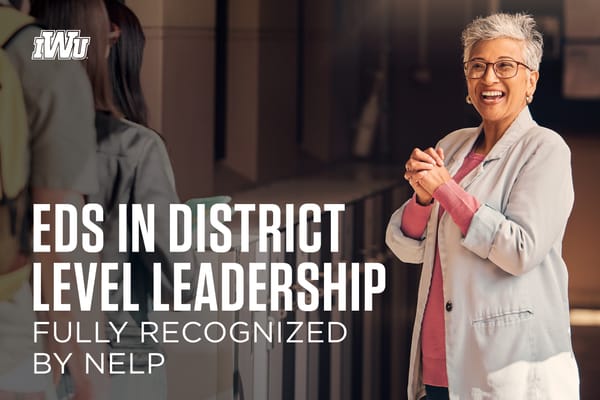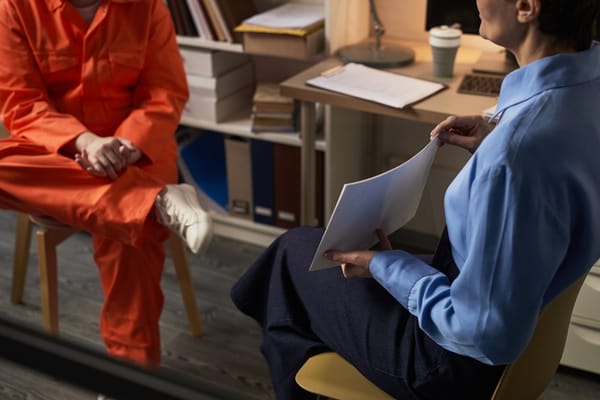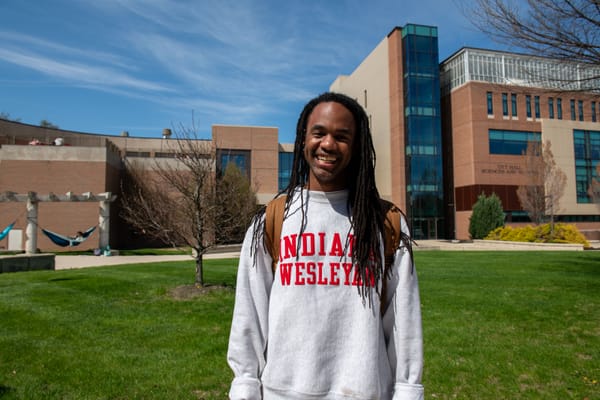With This Faith: An MLK Celebration
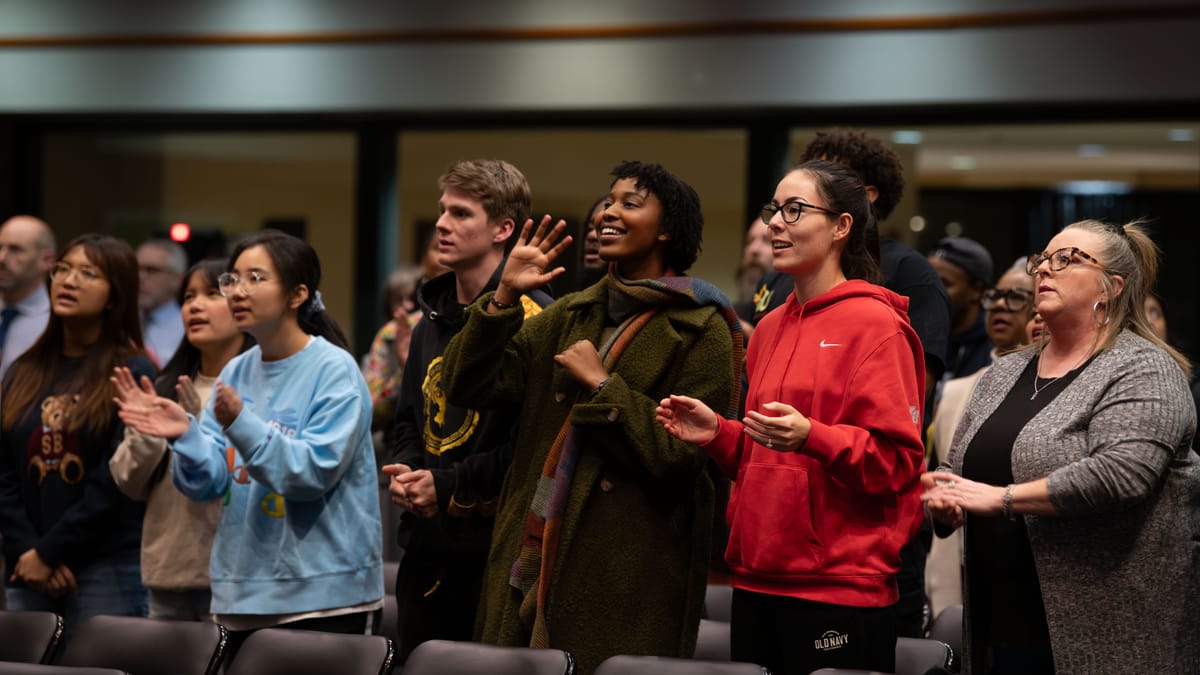
On Thursday, January 16, Indiana Wesleyan University hosted the event With This Faith: An MLK Celebration in the Barnes Student Center Commons. This event was held to commemorate the legacy of Rev. Dr. Martin Luther King Jr. and the ways in which his words remain relevant today. The event began with a musical performance by the IWU Jazz Combo under the leadership of Dr. Todd Williams, associate professor of education. Following this introduction, Dr. Karen Dowling, executive vice president and chief People & Culture officer (CPO) laid out the objectives of the evening: “one, let’s worship our lord and savior, praising Him for freedom in His kingdom, and liberty in His word and truth. Two, let’s learn from our time together, from MLK’s legacy, from each other, and from the message tonight. And then three, let’s engage with our community here and with others in the Beloved community.”
This was followed by James Beyioku, academic operations coordinator for Wesley Seminary, who further shared about the purpose of the event, “This event is patterned after Dr. King’s words in his monumental ‘I Have a Dream’ Speech, more specifically his passionate remarks of faith that equipped and strengthened him for his mission. So, by his example, and accompanied by his words, we will worship and release a beautiful symphony of brotherhood.” Beyioku also shared the passage of scripture from Hebrews 6:19-20 that served as the centerpiece of the event, “We have this as a sure and steadfast anchor of the soul, a hope that enters into the inner place behind the curtain, where Jesus has gone as a forerunner on our behalf, having become a high priest forever after the order of Melchizedek.”
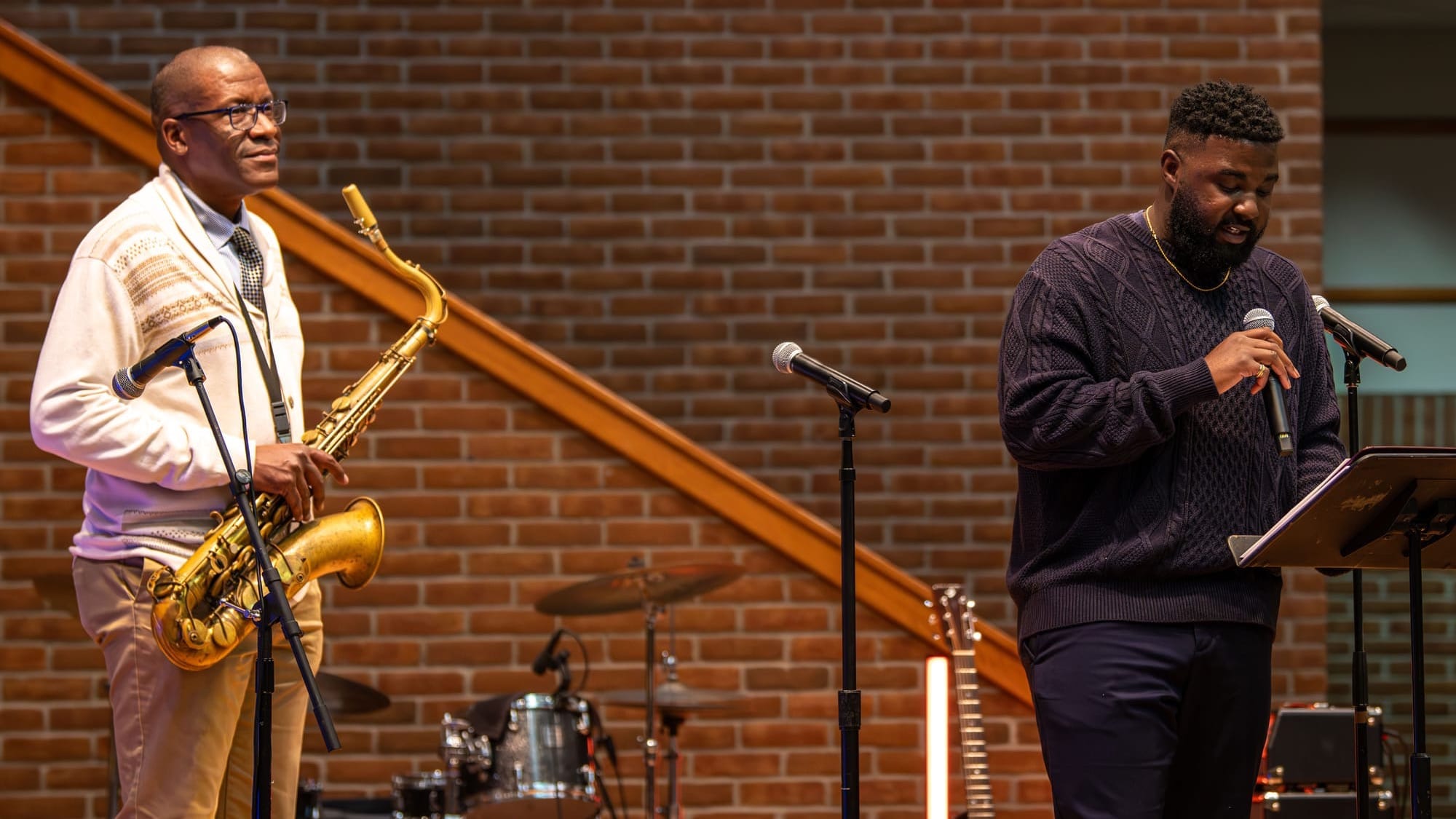
Dr. Todd Williams once again joined the stage to play the blues, after which sophomore Jamon Spikings sang the song “Deep River”, sharing, “I chose to sing this song because it carries a powerful message about hope and freedom… The idea of crossing over into a promised land reminds us of [Dr. King's] vision for a brighter future—one that we are all called to work toward.”
After this, the IWU Gospel Choir performed two songs, the IGO Student Ambassadors were featured, and Jonathan Mpanzu (assistant director of multicultural access and retention) discussed the recently opened multi-cultural barbershopThe SPOT where students and staff can get their hair cut for $35 by a barber experienced with all hair, Kalib Kemper, in an environment that positively builds up students.
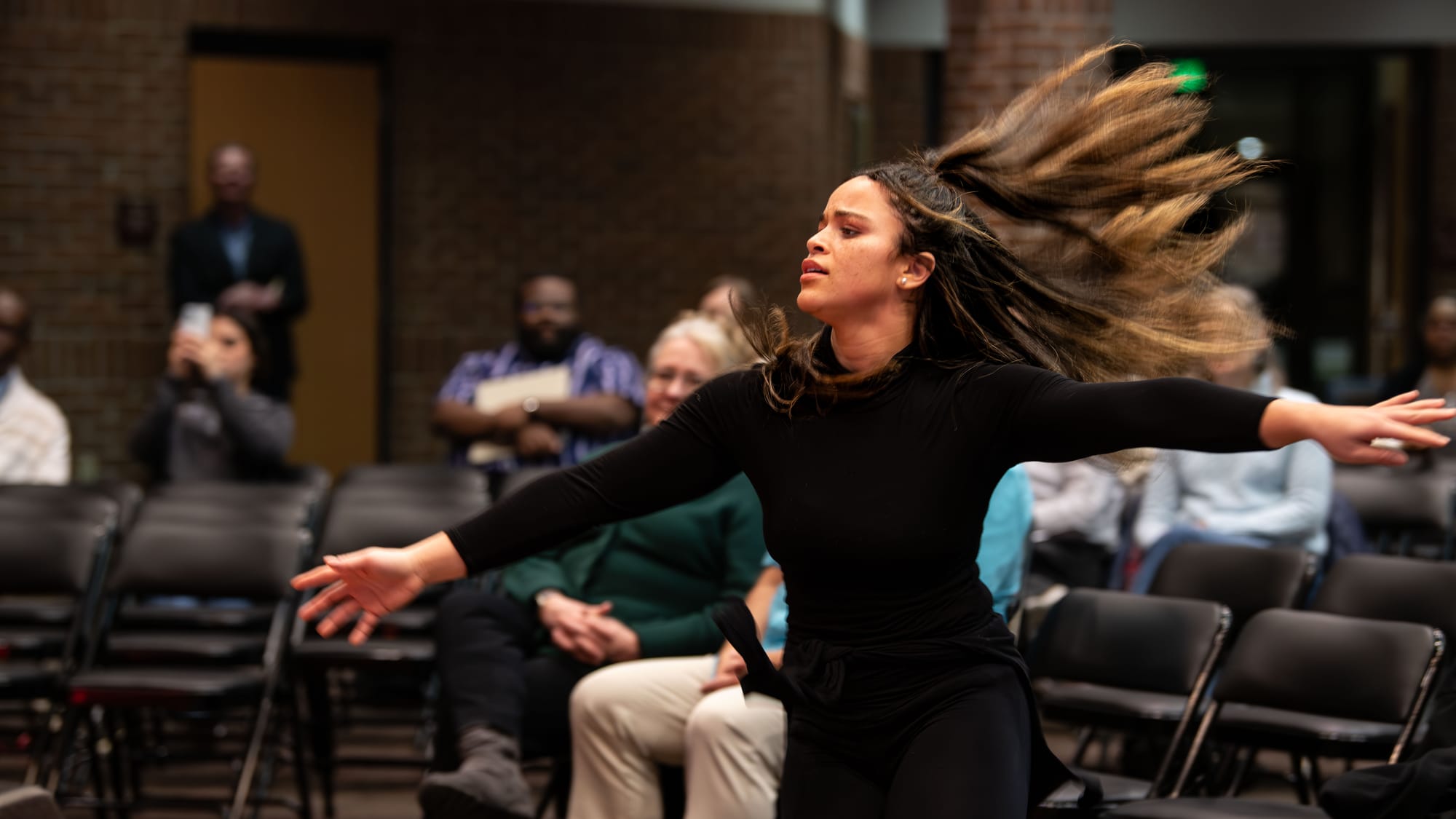
BSU representatives next performed an artistic expression called “The Journey” which featured a combination of music, dance, audio recordings, and signs, after which Brannon Hancock (dean of Wesley Seminary) led a number of worship songs along with a full band accompaniment. This was then followed by the introduction of speaker Rev. Keenan Davis, who brought a message.
Rev. Davis shared, “This event typically covers what has been done by Martin Luther King Jr, as an activist and other African American men and women who fought for our freedom during the time of legalized segregation here in America. This is a good practice. It’s always good to look back and remember where we came from. That is always a good thing. The issue that I have with that is that, as we continue in remembrance of this dark period in American history, we don’t give as much attention to the light and the potential of where we could go. Dr. Martin Luther King died at an early age, thirty-three—just imagine if he lived to sixty-six. Would his dream have ended where we are now? Or would it have expanded double the width or capacity? I always ask myself that question. What is the potential of us? Race will always be an issue when race, color, or culture is made up to be an issue… There are times in our lives when we should always play the teacher, and we should always play the student. I can learn from you, you can learn from me, and vice versa. That’s how we grow. Have we done that? It seems as if no one took the torch that Martin Luther King had and ran with it or dared to expand his vision. It seems as if we don’t have any more dreamers. It seems as if we don’t have any more torch bearers. It seems like the vision didn’t go too much further than voting rights, desegregation, labor rights, and civil rights. Martin Luther King wanted brotherhood in unity, not cultural toleration.”
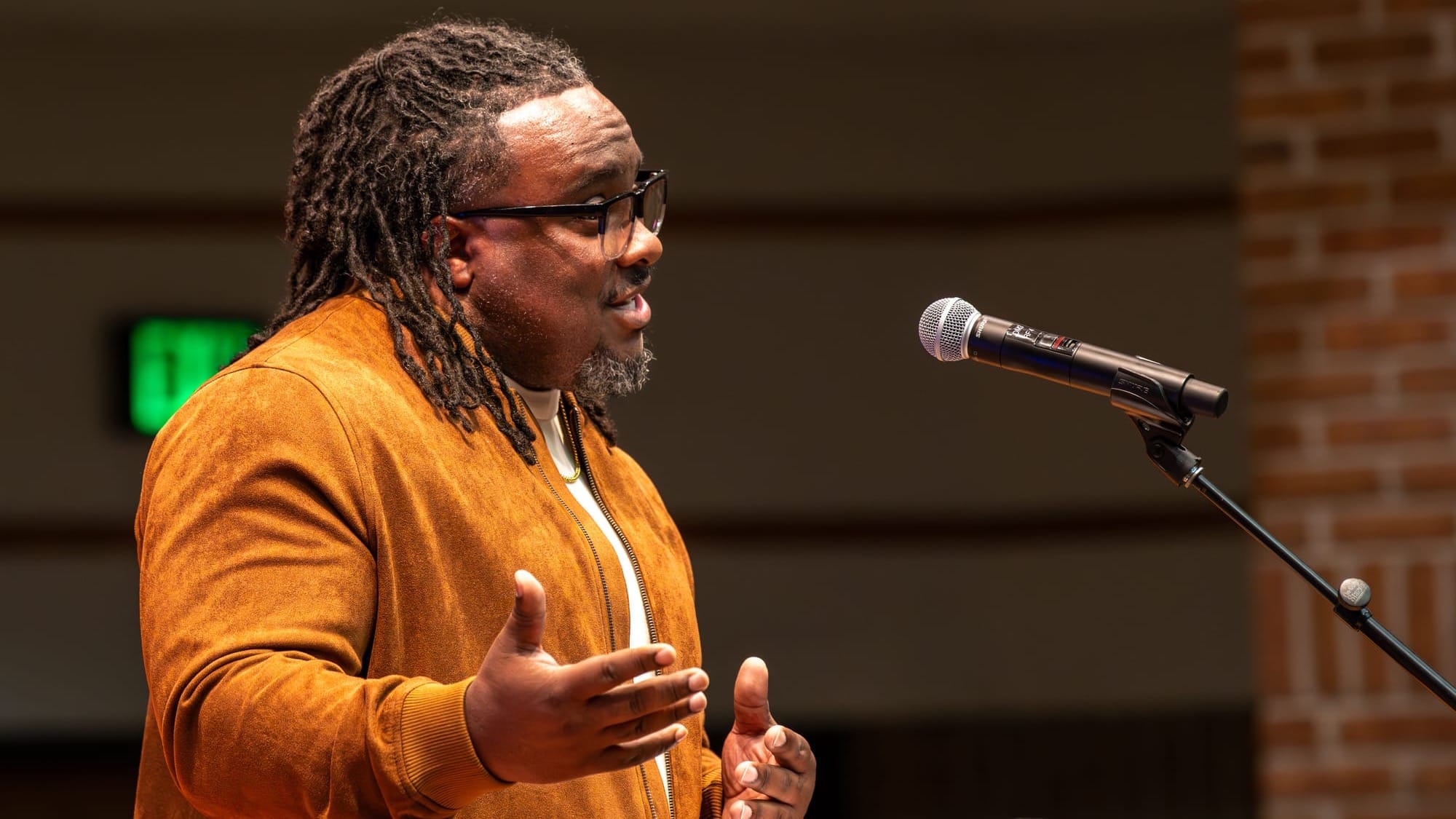
Quoting Dr. King he continued, “’No, no, we are not satisfied, and we will not be satisfied until justice rolls down like water and righteousness like a mighty stream. I am afraid that many among you are more concerned about making a living than making a life. You are prone to judge the success of your profession by the index of your salary and the size of the wheelbase on your automobile, rather than the quality of your service to humanity. Social justice and progress are the absolute guarantors of riot prevention. We’ve got to give ourselves to this struggle until the end. Nothing will be more tragic than to stop at this point in Memphis. We’ve got to see it through and when we have our march, you need to be there. Be concerned about your brother.”
After this Rev. Davis said, “In 1961, after the desegregation of schools, Martin Luther King gave a speech to a hostile crowd, and he was asking them to resist the cancerous disease of disunity. I’m asking you all to do the same thing, starting tonight. Although the economy has advanced, in a sense of non-segregation of work school, and entertainment, America and Grant County are not operating at their full potential of brotherhood, community, and unity. We are still plagued with lack of unity, cultural appreciation, and brotherhood. Martin Luther King based his stance on biblical standards. Surprise, he was a preacher. He knew the word of God and he was a very astute preacher and pastor. He knew what the Bible commanded and understood that God’s wisdom far outreached anything that man could call wise. He knew the character of God that’s described through the Scriptures. He knew righteousness was required of us from God himself, and that righteousness aligns itself with the wisdom and the command of God.
“Our theme tonight is based all on hope, but you cannot have hope without unity and you cannot have unity without brotherly love. We can’t separate any of those. So in conjunction with asking you to be united, I’m asking you to bear yourselves up in love and love each other… Jesus Christ is our hope. Let’s hope to have a community that values brotherhood and unity. Let’s hope to have a community that has a foundation of God’s love. Let’s hope to have the eyes of Christ to look past this fleshly shell and bond spiritually. Let’s hope to have the heart of Christ to love each other as brothers and as sisters. Let’s hope to have a community that thrives spiritually, mentally, physically, and fiscally in abundance, joining together in unity. It isn’t always easy. It does require some strategy. Changing of perspectives is needed, patience definitely is needed, and sometimes stepping back to see the bigger picture is needed. But if we all can come to the reality that we are all important pieces in the grand community puzzle and begin to work together, I believe we can all figure things out and we can all complete this picture. We can all expand on what Martin Luther King started. We can do that together and we don’t have to dream alone.”
After Rev. Davis closed in prayer, the event concluded with those present working together on a variety of puzzles as they shared stories with each other and reached out to one another.
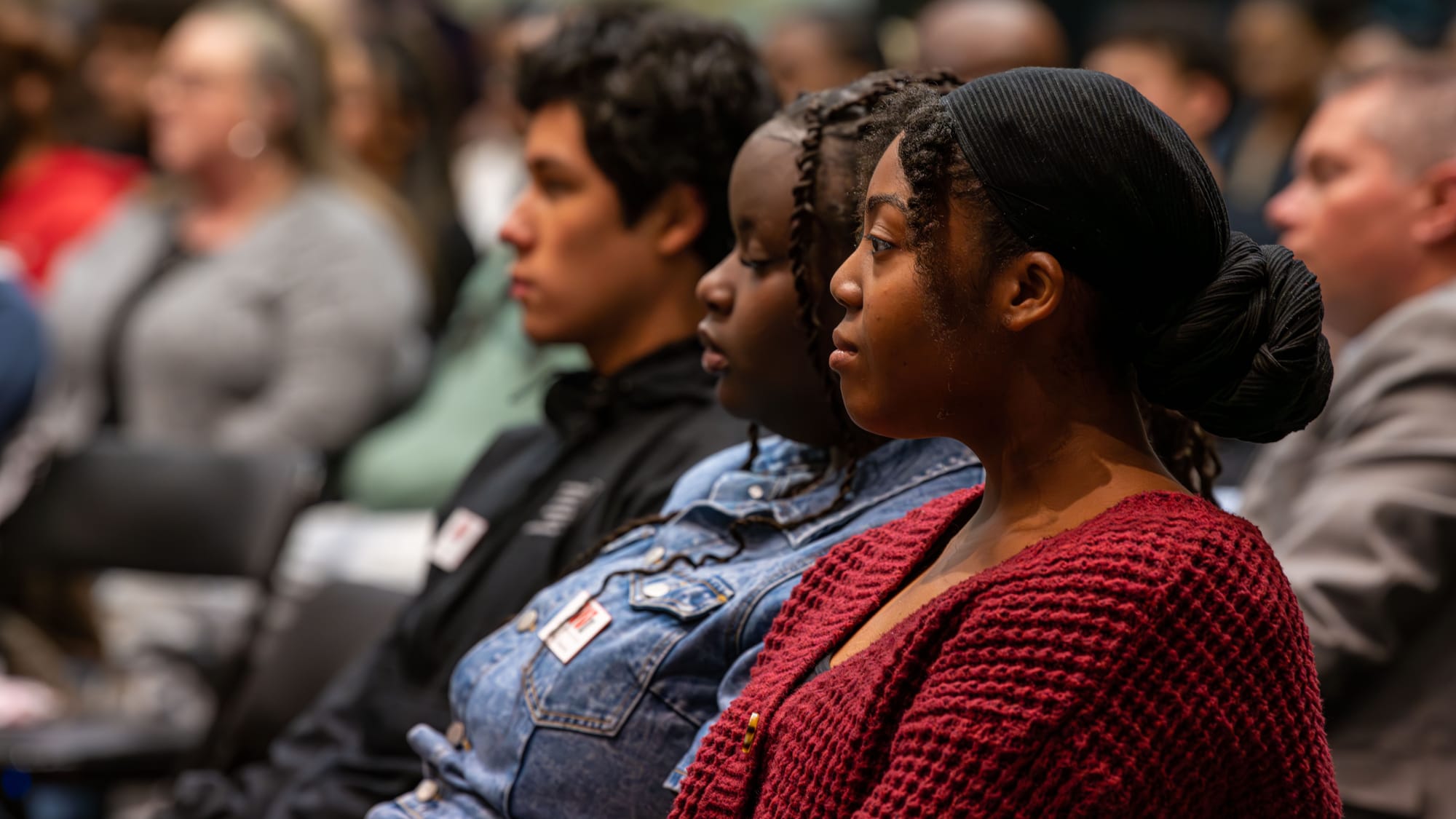
“I experienced the MLK Jr. Service as a powerful example of unity. In the service I saw students, faculty, and staff worshipping together across the boundaries of race, ethnicity, social class, gender, and age,” Professor Lakeya Stewart shared the following day. “I was particularly moved by the creative expression offered as Addie Davis danced. I could feel her passion. The employee worship team was amazing. It was a beautiful display of the different parts of our community coming together. Rev. Davis gave an inspiring word that challenged the campus to unify and to be that example of the fulfillment of Dr. King's vision. Rev. Davis challenged us to consider the impact Dr. King would have had if his life had not ended at age thirty-three. We concluded the evening with a puzzle that united groups of people together. What an amazing way to spend my Thursday evening!”
Rev. Davis also had words of excitement after the event, saying, “What inspired me was being able to observe various races sing songs that were created by blacks during the time of legal segregation. It reminds me that God’s presence is still here and that there is still hope for John 17:21 to take place.”
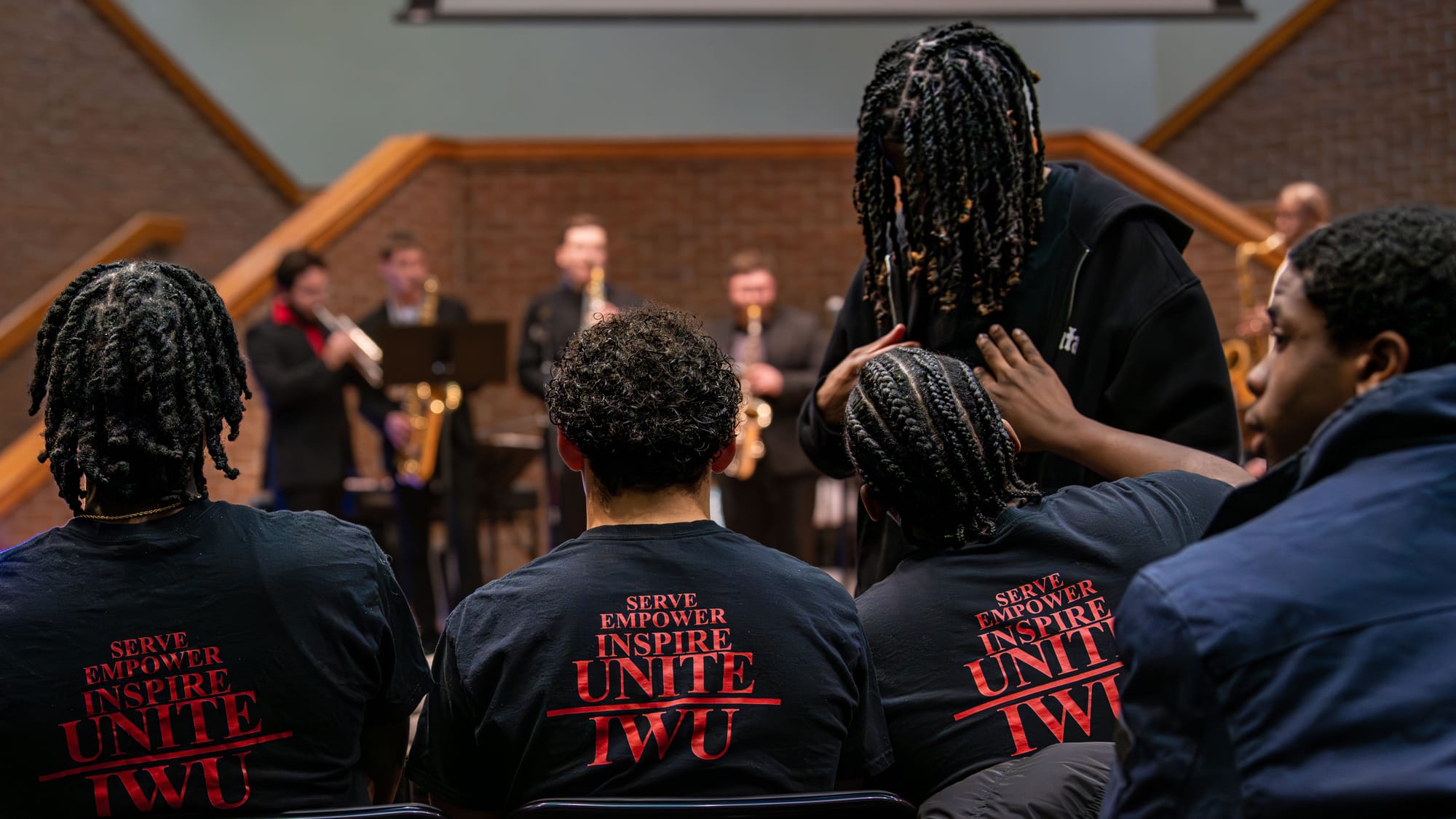
“We are so blessed to have students, faculty, staff, and community members invested in supporting Kingdom work,” shared Tammy Miller, coordinator of People & Culture. “Keenan reminded us that God's promises in Hebrews 6:19 are the hope we hold in Christ as a sure and steadfast anchor for our souls—no matter what! I believe that a spirit of unity can grow and spread in our community and beyond as we share the hope we have! Praise God for what’s to come!”
Finally, Dr. Dowling said, “The MLK Celebration was a beautiful, visual experience of hope and unity in the body of Christ demonstrated in worship through music, movement, and a message to challenge us toward learning about others. It concluded with an engaging activity that provided space to tell and hear stories of our community. Every person sharing did so with passion, showing us how encouraging it is when we come together as a community and how great our God is. The puzzle pieces coming together to create a complete picture reminds me of our aim to create a campus and whole university environment for our people and students that reflects the words ‘on earth as it is in heaven.’”


